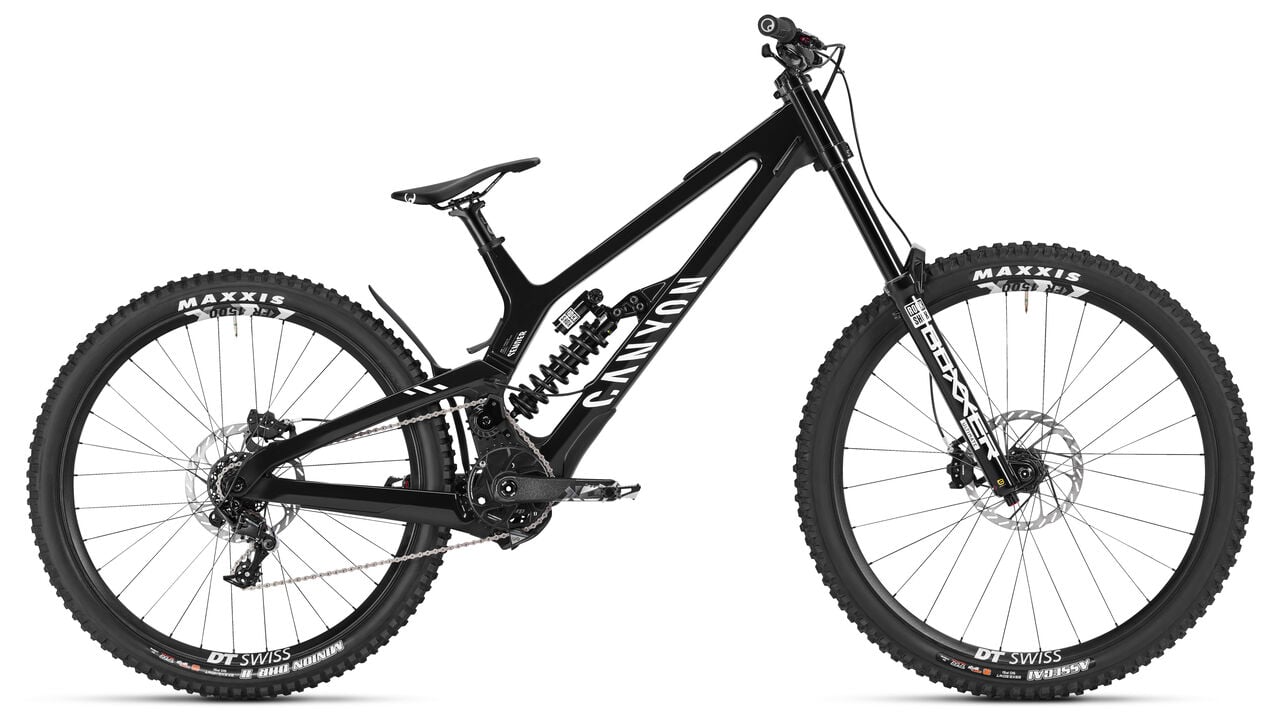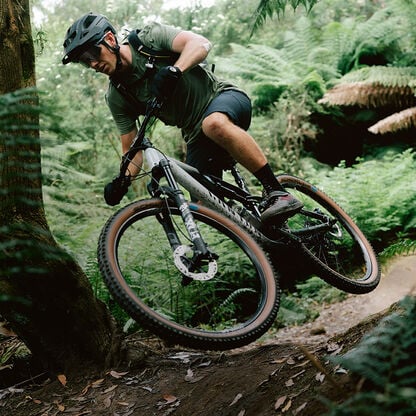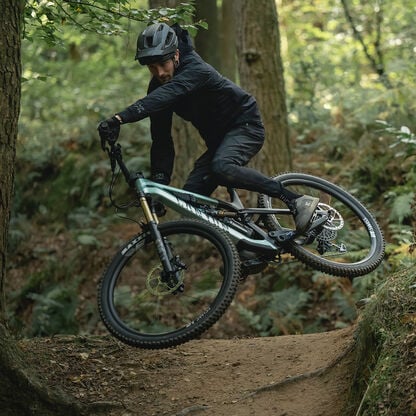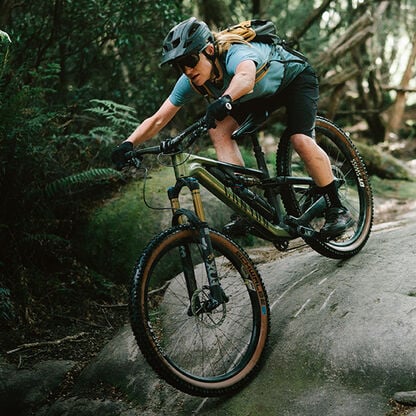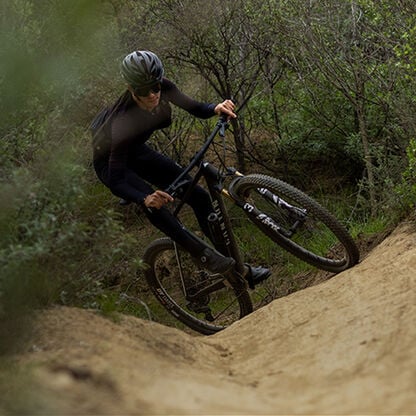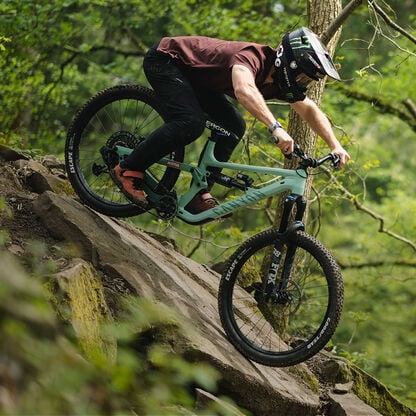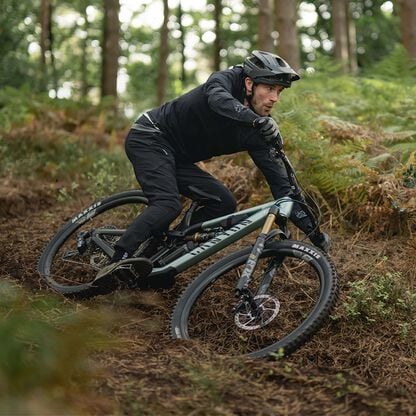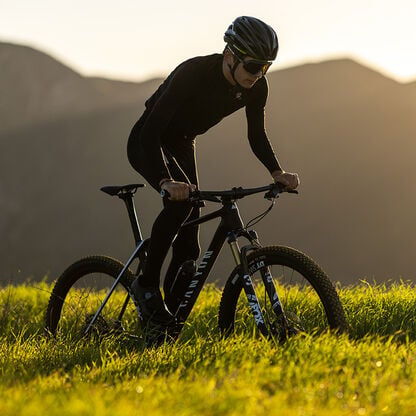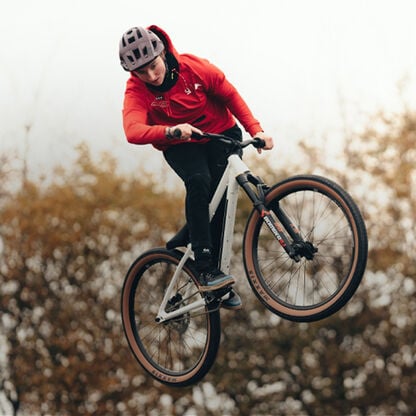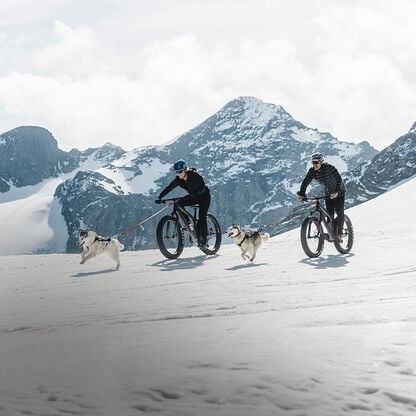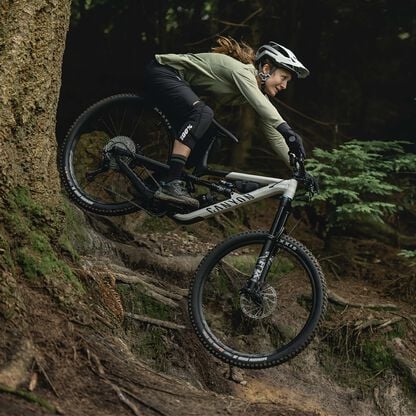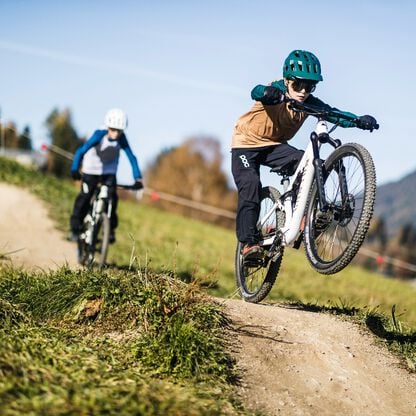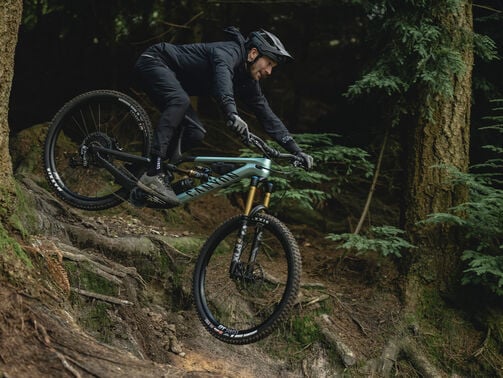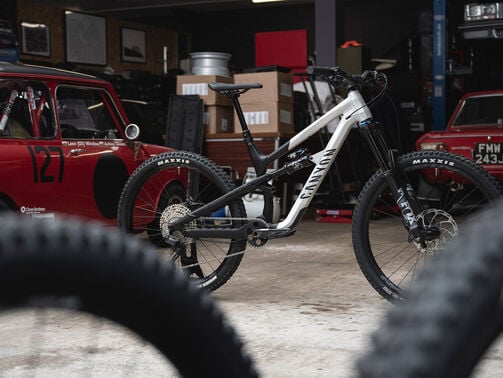Mountain bike sizing: Your complete mountain bike size guide
Looking to buy a mountain bike but not sure what size you need? Make sizing easy with our short, simple guide.
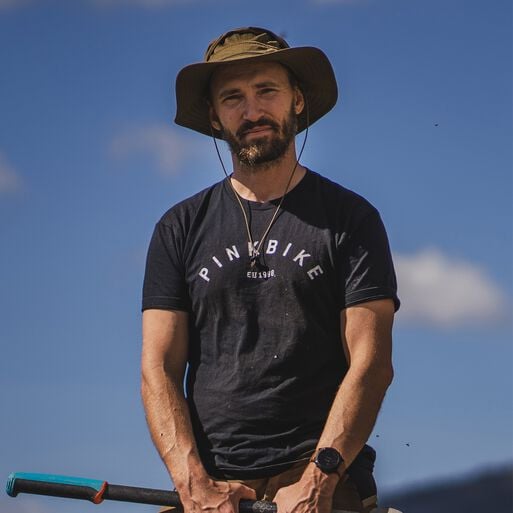
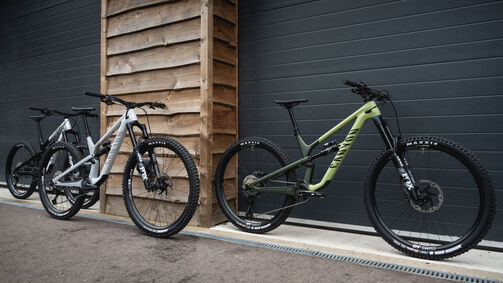
Bike fit is the most important part of finding a mountain bike that you love. You can have all the tech, features and gadgets you like, but if your bike does not fit well you are never going to be able to enjoy it fully. You will always have more comfort and control on a well-sized bike for you. As a pioneer in selling bikes directly to consumers, we spend a lot of time working on how to help you find the right-sized bike for you without having to be professionally measured.
Whether you are an experienced rider or just starting your mountain bike journey, bike fit never stops being important. From using our Perfect Positioning System to diving into the mountain bike geometry charts, this guide will walk you through two different ways to find a mountain bike that fits your body.
Contents
Why does frame size matter?
Frame size is one of the core elements of a long and happy relationship with your bike. Stripping it down to its basics, bike fit is about the shape of the frame. If the shape of a frame does not work with the shape of your body, then 9 times out of 10 the only solution will be buying a new bike. Imagine if the seattube is so long you can’t reach the pedals or the toptube is so short your knees are hitting the bars, you’re not going to have much fun out on the trail.
How are Canyon bikes sized?
Our mountain bikes are split into five sizes for most models going from XS to XL, catering for riders from 150-200cm tall. For our gravity bikes aimed at more niche riders, like our downhill race bike the Sender, we may offer a more limited set of sizes.
Alongside each bike we provide a size chart. This plots height against inner leg length and matches them to the sizes of that bike. If you have you used our Perfect Positioning System it will show where on the chart you are.
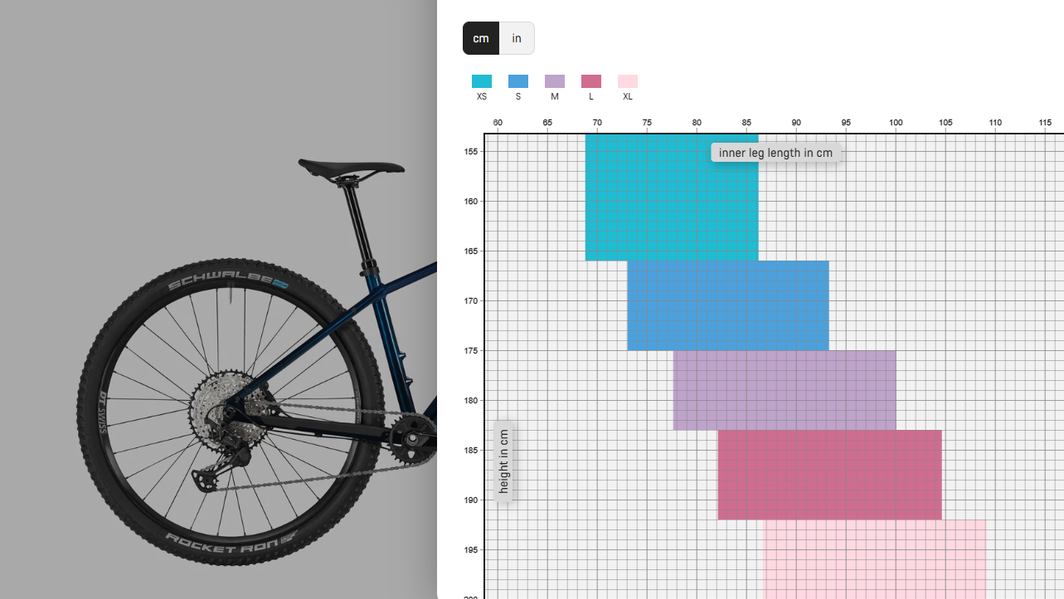
Why do some sizes have 27.5” wheels?
We design each bike with a rider in mind and adapt our sizing philosophy to that rider. As a guiding principle, we do not believe that smaller riders are best served by 29” rear wheels. Nearly all of our smaller sizes run at least a 27.5” rear wheel, and some run 27.5” front and rear to make the bikes easier to handle for smaller riders.
As you become a more experienced rider, you may develop preferences for one wheel size or another. For example, the Strive, Lux and Exceed are all designed as race bikes for maximum speed, so all sizes have 29” wheels front and rear. We believe this compromise in handling is worth it for the extra speed when racing. At the other end of the spectrum, the Sender is only available with a 27.5” rear wheel - this is called a mullet setup - because we think that is the fastest option for most downhill racers.
In the middle is the Spectral, our hardcore trail bike. It ships with a mullet setup as standard, as we think it is the most fun for riders who want to play with the trail, but it can be converted at the flip of a chip to run a full 29” setup.
Mountain bike frame sizing for less experienced riders
If you find the idea of crawling through endless geometry charts intimidating, or just plain boring, we created our Perfect Positioning System for you. In less that five minutes, with a few simple items it will calculate your suggested size. Our customer data shows that 98% of people get the right size bike using this system.
What do I need to use the Perfect Positioning System?
All you need to measure yourself is five minutes, a wall, a tape measure and a book or spirit level. It is easier if you can find someone to help you, but it is entirely possible to do your own measurements.
How does the Perfect Positioning System work?
The system will walk you through how to take your measurements and provide you with a recommended mountain bike size. It will also provide you with a recommended saddle height. If you are logged onto the Canyon website it will automatically record your results and show them when you view a bike.
What do I do if it says I am between sizes?
If you feel you are between sizes, you have the option of sizing up or sizing down. This means deciding whether you want the larger or smaller mountain bike. There are advantages and disadvantages to each. If you choose to size down, you will find the bike smaller and easier to handle. The trade-off here is that it won’t be quite as stable at speed as with the larger bike, so you need to think about what would suit you best.
If you are a less experienced rider, we would always recommend sizing down. Using our Perfect Positioning System, you can be confident that both sizes would fit you, but by taking the smaller size you are increasing your chances of having an easy to live with bike. Sizing up to a larger bike will make it a little harder to move around on the trail and would typically suit a more advanced MTB rider who knows what handling characteristics they are looking for.
Mountain bike frame sizing for advanced riders
As you become more experienced as a mountain biker, it is likely you will begin to have preferences for how you want your bike to feel. This is most common amongst gravity riders, the people who ride to enjoy the descents. For them, the most important thing is how the bike handles when they are standing up and attacking the trail. Sizing is an important part of this overall picture of how the bike handles. For instance, a longer bike is more stable at high speeds, but it may become challenging to handle on slow, technical trails. A smaller bike will be quicker to handle but will be less stable at top speed.
To find their perfect mountain bike, they consult the geometry chart. Our charts give both body height and seat height values to help you find your MTB size easily, but you can get really deep into the numbers if you want to.

How to use the seattube length to size your bike
Dropper posts have become a major part of bike fitting and you need to add the length of the post to the calculation for the seat height. Today, longer and longer dropper posts are becoming more and more popular, but if you want to install a dropper post longer than the one your mountain bike came with you will need to check the seattube length. Our measurements are all based on the standard seatpost supplied with the bike.
How to use reach to size your mountain bike
Many Canyon bikes, like the Spectral, have shorter seattube lengths to allow riders to choose their reach of preference. This imaginary, horizontal line between the centre of the bottom bracket and the headtube reflects the effective length of the front triangle of the bike. For many, this is the most important number that defines how a mountain bike handles.
Sizing a downhill bike
For a downhill race bike like the Sender, reach is the primary way for most riders to choose their size. On that bike, the seattube is very short to help keep the saddle out of the way when you are at full speed and most riders run their saddle well below the height needed for pedalling. This means riders rarely need to think about the seattube length for bike fit, and a very short rider could probably fit on the XL. However, the chances are that they would find the reach way too long to be able to ride effectively.
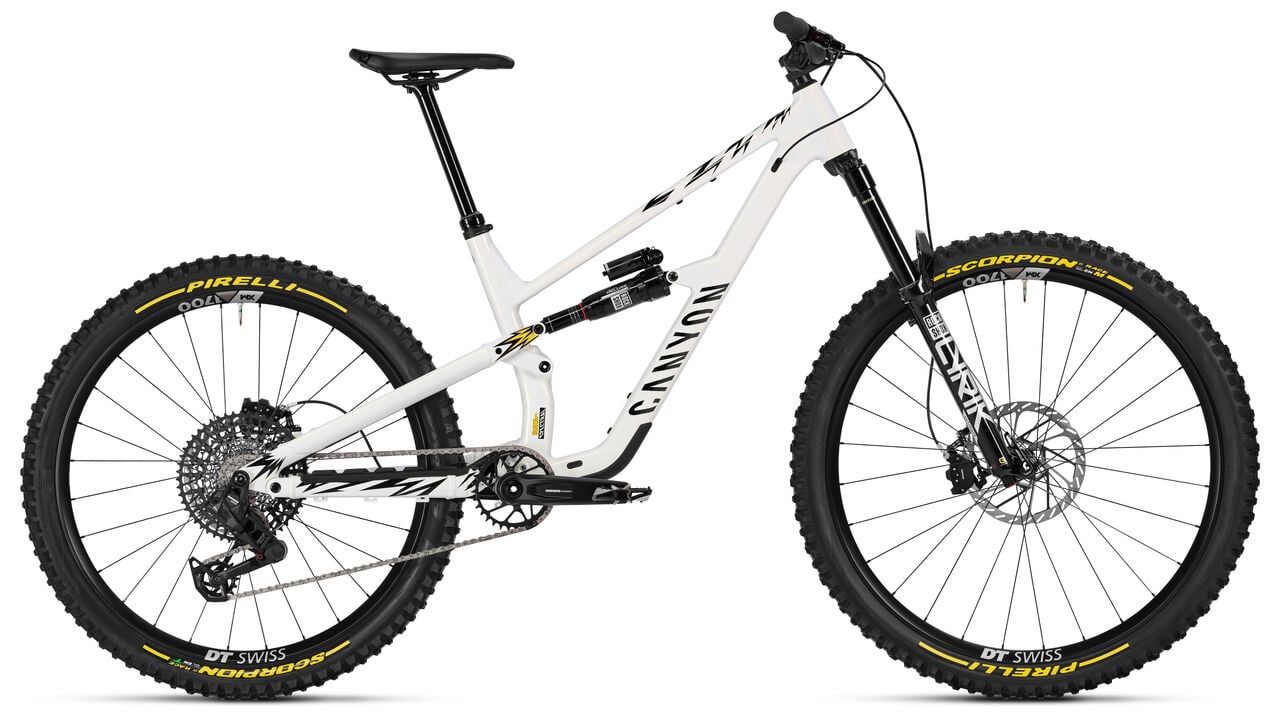
From fast-flowing trails to the most extreme downhill courses, Canyon’s mountain bikes are built to push your limits and amplify your ride.
- Canyon Spectral is your all-round trail weapon - engineered for playful agility, confident control, and pure trail fun across any terrain
- Canyon Sender built to dominate the world’s toughest downhill tracks, it delivers uncompromising speed, control, and race-ready performance for the most demanding riders.
Why toptube length is not often used
In the past, many people used the top tube length to find the bike size. Today this is seldom used because the length of the toptube is affected by both the angle of the seattube and the angle of the toptube itself. We use reach because it is a more consistent measurement to help you understand how the mountain bike is going to feel.
Women’s mountain bike sizing tips
We do not make gender-specific bikes. After years of research, we believe that the most important factor for feeling comfortable on a bike is the fit. With 98% of riders reporting they found the right MTB size with our Perfect Positing System, you can be confident of getting a great-fitting bike.
Youth mountain bike sizing tips
We put a lot of effort into making great bikes for young riders because we know they are the future of our sport. We size our youth mountain bikes on a continuous scale. This means that rather than having separate youth sizes, a bike like the Neuron Young Hero is offered in XXS and XS. This allows you to using a consistent sizing chart as they grow and they can progress onto the adult MTB sizes when they are ready. Because of this you can use our Perfect Positioning System to find their ideal-sized bike.
What if I am still confused about bike fit?
The goal of a great-fitting bike is that you shouldn’t have to think about it when you are riding. By this we mean that your pedal strokes should feel easy, your back should not be too stretched and you should feel confident and ready for the trail ahead. Once you are happy with how a bike fits, you will be ready to think about your mountain bike setup - getting your saddle, handlebars and controls in the right place to maximise your comfort.
If you have got this far and it all still feels like so much double Dutch, then we would recommend visiting one of our Experience Centres. The team there will be able to talk you through your bike fit and will be able to set up a test ride for you.
For more guidance, check out our mountain bike buying guide and our tips on how to start mountain biking - including our guide to the best beginner-friendly MTBs.
Discover our Mountain Bikes
Did this article help?
Thank you for your feedback
-
 About the author
About the authorMatt Wragg
Get to know Matt Wragg, the freelance photographer, writer, and self-proclaimed bicycle-breaker based in Nice, France. Despite unsuccessful attempts at XC, trials, 4X, and DH racing, Matt's passion for mountain biking never waned. After a stint in communications consulting, he decided to pursue his love for cycling and moved to New Zealand. Since then, he has traveled the world, chasing trails and building a successful career as a cycling photographer and writer. In 2021, he was diagnosed as autistic and has been coming to terms with it. His bike cellar is a true testament to his love for cycling, housing bikes that range from freeride to cargo.
